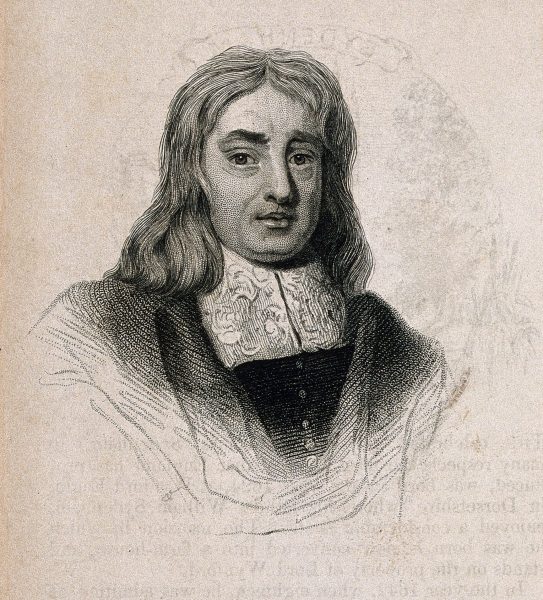Thomas Sydenham

Thomas Sydenham (credit: Wellcome Collection)
Thomas Sydenham was studying at Oxford when the Civil Wars broke out. He went to fight on the side of parliament and it seems that he was seriously wounded when the royalists captured the town of Weymouth in February 1645. It was perhaps this experience which led to Sydenham’s interest in medicine. According to his friend Thomas Millington, Sydenham had been ‘idle and never studied’ during his time at Oxford but after having been in the army ‘took a resolution to study medicine’. He returned to Oxford, where he got a degree in medicine in 1648. Sydenham went back into the parliamentarian army in 1651 and fought in Scotland and at the battle of Worcester. He was wounded in the fighting leading to the battle and like many injured soldiers, wrote a petition for money in which he claimed that he had ‘lost much blood, and was thereby much disabled his body’.
After the Civil Wars were over, Sydenham became a doctor in London. He argued that a good bedside manner was important when treating patients. He rejected treatments such as blood-letting and instead preferred keeping patients warm, comfortable, well fed and with plenty to drink. He also taught the importance of practical experience and observation in medicine, and in 1676 he published Observations in Medicine. Sydenham later became known as ‘the father of English medicine’ and ‘the English Hippocrates’.
